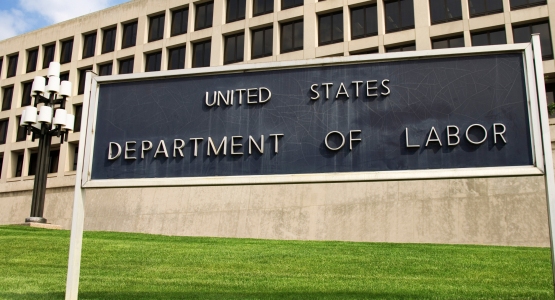Texas Judge Invalidates New Department of Labor Overtime Rules
Over the past year, we have shared several updates on the new Department of Labor overtime standards.
On November 14, the U.S. District Court for the Eastern District of Texas completely invalidated the U.S. Department of Labor’s 2024 overtime final rule. This decision has wide-reaching implications for both employers and employees across the country because it alters the criteria for determining overtime eligibility under the Fair Labor Standards Act (FLSA).
You may recall new minimum salary thresholds were put in place for employees who qualify for exemption from overtime under the “white collar” exemptions. The first increase took place on July 1, 2024 ($43,888) with an even larger increase ($58,656) set to take place on January 1, 2025. In a surprise, as a result of the court’s decision, the minimum salary threshold for exempt employees is now set back to the previous level of $35,568. For Highly Compensated Employees (HCEs), the threshold has reverted to $107,432.
For agencies, this ruling provides some relief from the impending January 1 increase in minimum salary threshold. The increase would have required a reevaluation of employee classifications and possible salary adjustments.
The Ohio State University recently released news that over 300 of its employee’s projected salary raises, meant to go into effect on January 1 due to the updated salary thresholds, have now been cancelled due to the recent ruling. (Source: The Lantern). A university spokesperson, Ben Johnson, shared that OSU saw a total salary adjustment increase of $2,046,00 when the DOL rule became effective. “Last month, a federal court struck down [the] change,” Johnson shared. “Accordingly, employees receiving increased pay in November and December will revert to their original salary in January.”
If you already made adjustments, I encourage you to be cautious in reversing previously communicated employee decisions. The ruling doesn’t change the underlying duties test, which remains the primary criteria for overtime exemption. It remains our guidance that most customer service level and administrative employees in an agency should be classified as non-exempt and eligible for overtime.
In his decision, U.S. District Judge Sean D. Jordan acknowledged that, while the DOL has the authority to define and delimit the terms of the overtime exemption, this authority isn’t unlimited. Specifically, the court found that the DOL’s approach under the 2024 rule “effectively eliminates” the evaluation of an employee’s job duties in favor of a salary-only test.
Judge Jordan’s ruling criticized the DOL for using a fixed salary threshold as a determinant for exemption eligibility, stating that it disregarded whether employees were actually performing executive, administrative or professional duties—key components of the exemption under the FLSA. This “salary-only test,” the judge noted, effectively undermines the law’s intent to focus on the nature of an employee’s work.
The ruling also addressed another contentious aspect of the 2024 rule: automatic updates to the minimum salary threshold every three years. According to the court, this mechanism violates the notice-and-comment rulemaking requirements set forth by the Administrative Procedure Act (APA). This procedural oversight renders the automatic updates invalid, adding another layer of complexity to the DOL’s approach.
While the current DOL could appeal the ruling to the 5th Circuit, it is widely anticipated that the new Trump administration will not defend the rule change and allow the court ruling to stand.
In the coming years, employers may see new rulemaking from the DOL that could propose updated salary thresholds or alternative methods for determining overtime eligibility. However, any such changes will require the rulemaking and feedback process before implementation.
If you have questions about employee classifications in your agency, please feel free to reach out to Brian Lawrence, Director of HR Solutions.
Sources:
- Portions of this article were written by Nathan Riedel, Big I Senior Vice President of Federal Affairs
- The Lantern, Nora Igelnik
 About the Author
About the Author
Brian Lawrence is the Director of HR Solutions for Ohio Insurance Agents. He is responsible for providing HR support and resources for the membership. His HR career spans 25 years across Insurance, Financial Services, Healthcare, and Association Management.
Much of his experience includes 20 years at Nationwide, where he spent seven years as an HR Director/HR Business Partner providing strategic support to executive leadership teams across P&C, Commercial and Non-Standard Customer Service Operations, Life Insurance and Annuity Operations, & Nationwide Pet Insurance.


